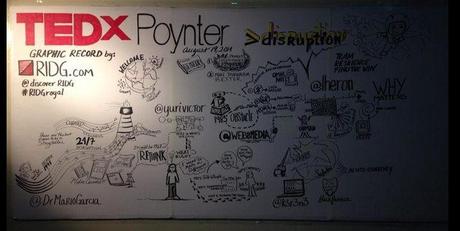
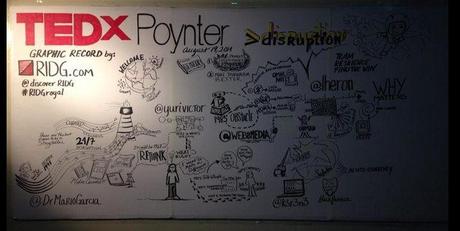
Artist Michelle Royal (@michellesroyal) created a mural capturing highlights of each speaker's presentation during the conference
At the TEDxPoynter conference Tuesday, Aug. 19, tons of information was packed into the space of a day. I was honored to be one of the speakers.
I was also was a member of the audience and what a line up of "disruptors" this conference joined.
One of the most fascinating disruptions of the conference was the presenters and their presentations.
Don't know whether this was done by design, but the stage for the TEDxPoynter conference did not include a lectern. There was no "tribune" for the speaker to hide behind while reading from a script.
The highlight of this conference for me was that there were no scripted presentations. Not that the presentations were not well planned, organized and systematized, with great visuals to match the narrative.
But not a single speaker read from notes. They spoke from the heart. Passion, knowledge and thoroughness were essential ingredients in all of the presentations. Index cards or printed notes stayed home.
I applaud Poynter for setting up the stage this way and, if this was accidental, let's adopt that mode of presentation for all future seminars.
We all have suffered through well intentioned but boring presentations where someone READ from a prepared text. Even good, substantive messages often get lost via the way they are presented.
At the TEDxPoynter conference, it was 8 presentations and not a line read out loud. Spoken from the heart might be an exaggeration to some, but it's how I, and others present, would echo what happened at this conference.
Disruption is all abandoning existing rules, so I applaud Ellyn Angelotti Kamke (@ellynkamke), TEDx conference organizer, by eliminating that ever-present lectern from the stage which, in turn, energized speakers to speak from their heads and their hearts. Win win for disruption.
Takeaways from my fellow speakers at the TEDx Poynter conference on disruption:
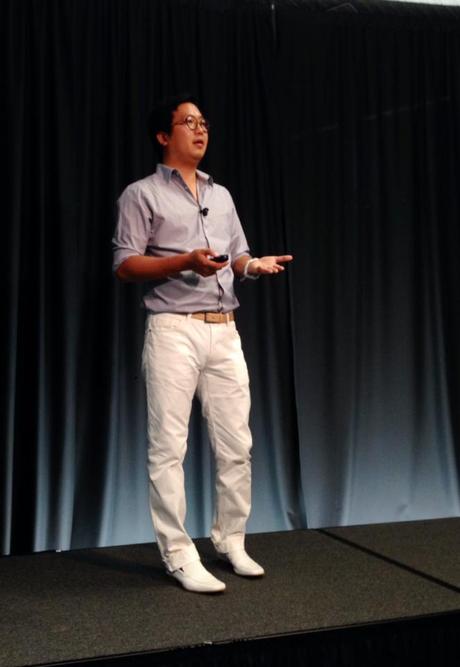
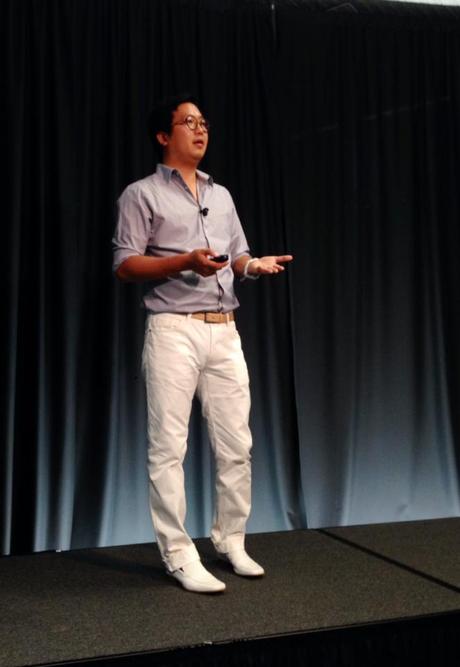
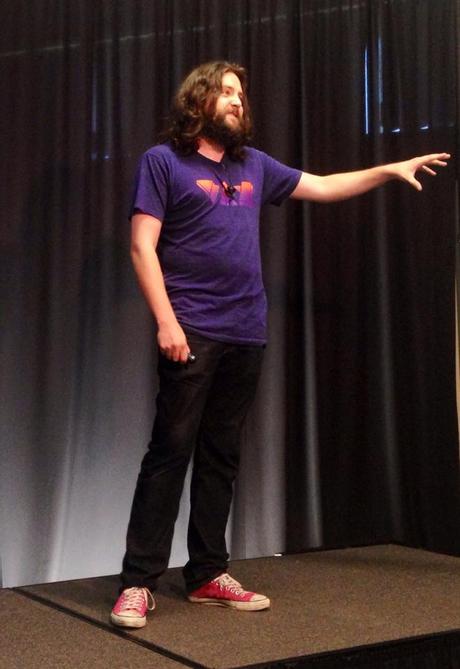
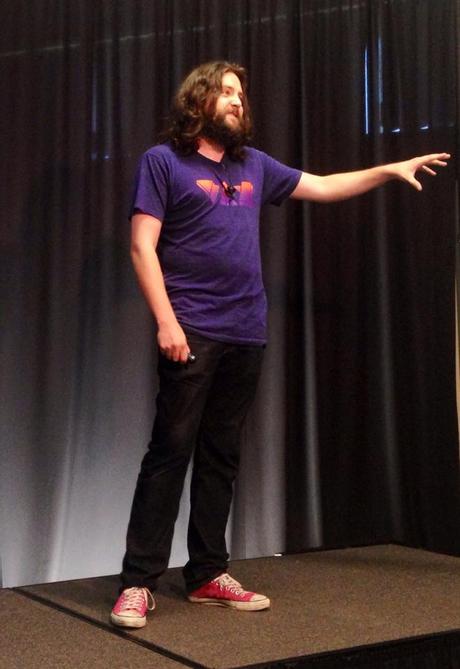
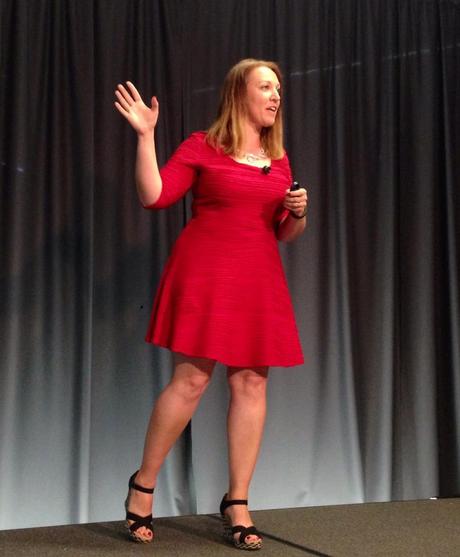
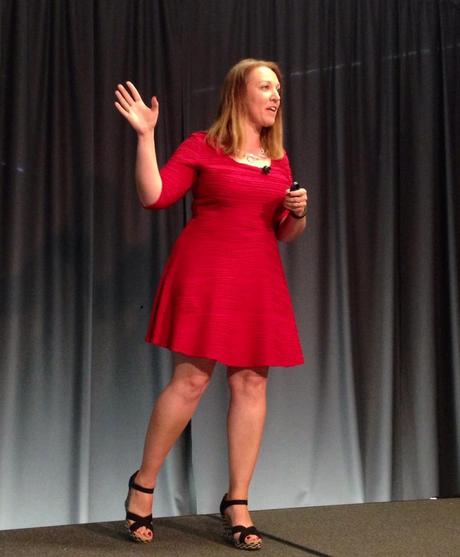
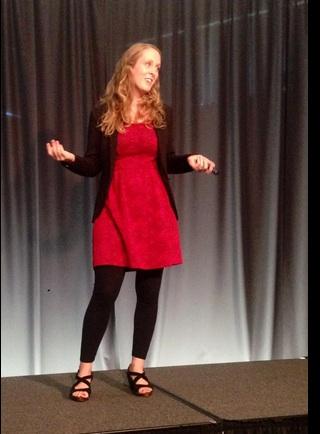
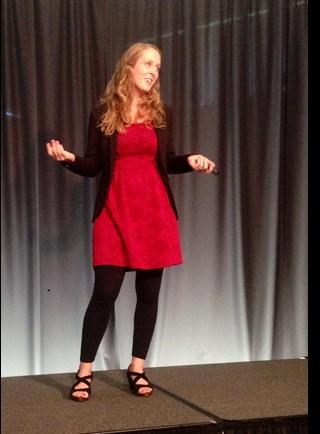
Ben Huh, Yuri Victor, Amy Webb, Lyn Heron during the TEDx Poynter Conference at The Poynter Institute for Media Studies


Two moments from my presentation: Two Tempos for Storytelling in the Digital Age
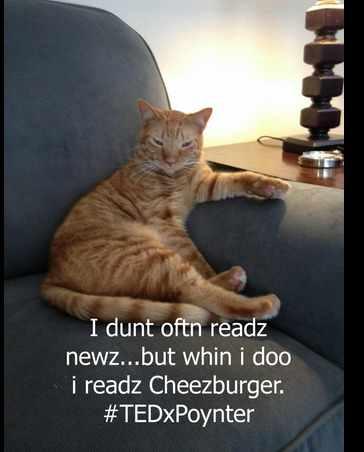
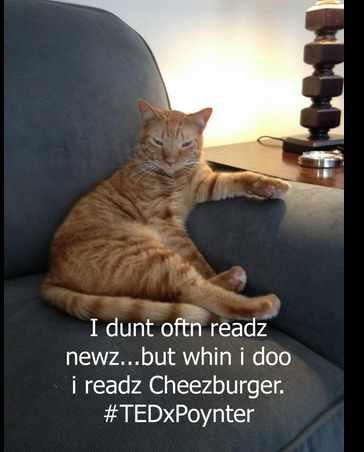
Image shown during Ben Huh's prsentation
Yuri Victor, @yurivictor, The Vox, Senior User Experience Designer
Using Empathy to Fix the Modern Newsroom
"People burn out alone. They spark together. Be an org that creates sparks. "
"Best practices are bad habits."
Liz Heron, @lheron, Facebook, Head of News Partnerships
How to win the Internet (news cycle)
"We should educate non-professionals, be prepared to be transparent & amplify wisely "
Liz Heron
Amy Webb, @webbmedia, Founder, Webbmedia Group
The power of no
All creative ideas stumble upon obstacles at one point or another. Learn not to abandon your idea after you get a few NO's along the way. Patience and perseverance lead to change.
"No" is not an innovation killer. It's a catalyst to thinking through that problem at different angles and in different ways.
Jen Lee Reeves, @jenleereeves, AARP, Social Communications Trainer
What my 71-year-old mother-in-law taught me about technology
There is no question about it: People of all ages are connected to the Internet. One of our tasks must be to learn and to teach digital literacy.
The most important thing you can do for digital literacy is to remind everyone that EVERYTHING you put online can be public.
Ben Huh, @benhuh, Cheezburger, CEO and Founder
Crossing the content generation gap
"So important to bring humor to the storytelling process.....We may not be the only ones breaking the story anymore, but we certainly have the power to shine a light on important issues"
Jamie Klingman, Creative Entrepeneur
Creating the win in disruption
"Innovators must look for ways to make disruption a positive. Disruptive innovation must change habits in a positive way. Create the win as a disrupter. The first win is to be had in the idea itself. Most disrupters are good at finding this win, but to be successful, they have to lay the path for wins for the Disruptee and the rest of society.
"Most disruption at some point requires buy in from funders. They must see the win to provide the resources for others to be given the opportunity. Disruption has to create a net positive change."
Dr. Kanika Tomalin, @StPeteTomalin, Deputy Mayor, City of St. Petersburg, Florida
The Road to Resilience is paved with disruption
Disruption is the catalyst to change. Disruption is certain. It is not a matter of if disruption will occur, but when. The goal for what happens after the disruption is not just to survive, but to thrive. "
For more information:
http://www.poynter.org
#TedxPoynter on Twitter

